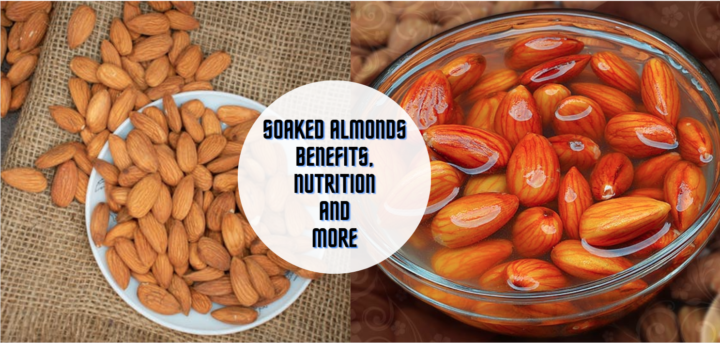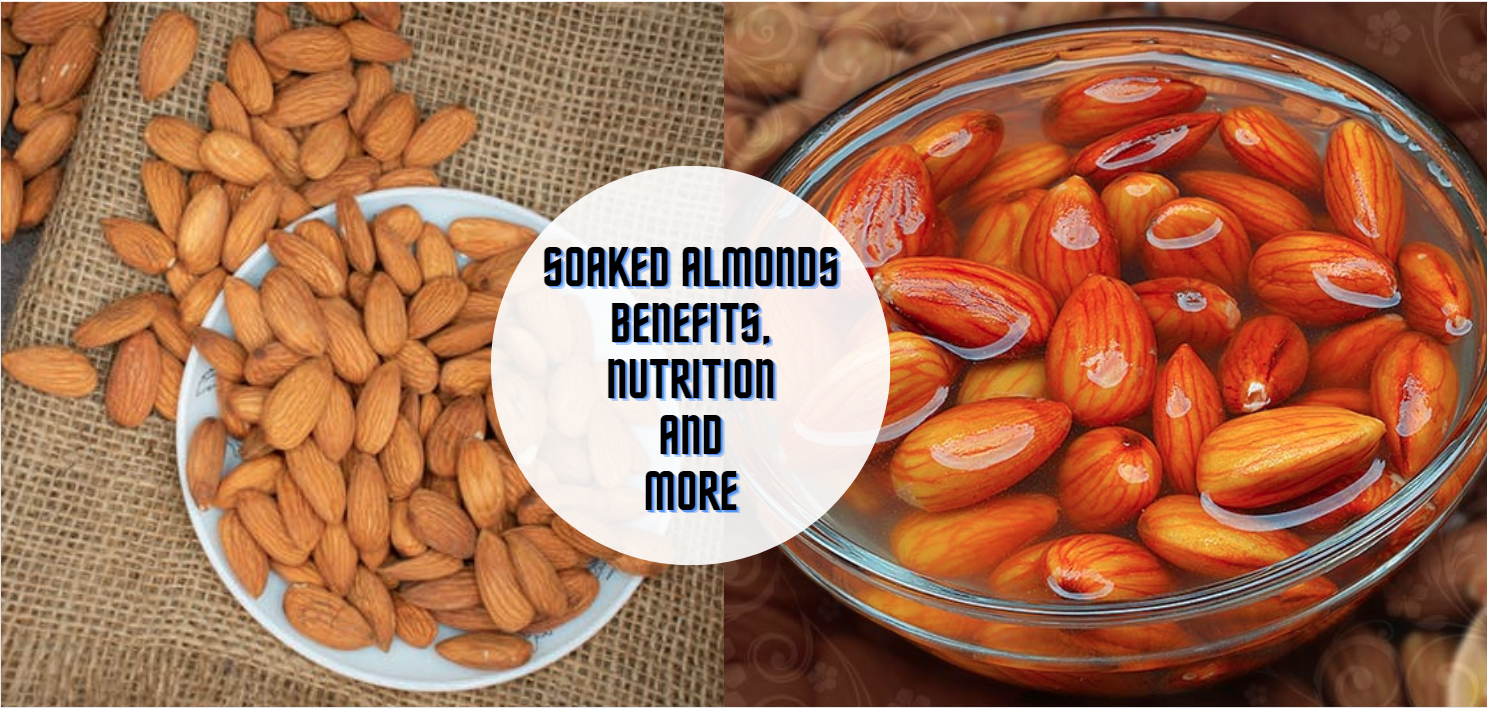Let’s talk about a super healthy snack – soaked almonds! These little nuts, when soaked in water, become a powerhouse of goodness for your health.
In this detailed guide, we’ll explore why soaked almonds are so good for you, what nutrients they have, any downsides to watch out for, and answer the top 7 questions people often have about these amazing nuts.
Soaked Almonds Benefits
- 1. Enhanced Digestion and Nutrient Absorption
- Soaked almonds benefit your digestive system by releasing enzyme inhibitors. This process aids in easier digestion and better absorption of nutrients, ensuring you get the most out of these nutrient-dense nuts.
- 2. Improved Heart Health
- The benefits of eating soaked almonds extend to cardiovascular well-being. Packed with monounsaturated fats, they contribute to lowering bad cholesterol levels, promoting a healthy heart.
- 3. Weight Management Support
- For those on a weight management journey, soaked almonds can be your allies. The fiber content promotes a feeling of fullness, potentially curbing overeating and supporting weight loss efforts.
- 4. Boosted Brain Function
- Soaked almonds are a rich source of nutrients crucial for brain health, including vitamin E and omega-3 fatty acids. Regular consumption may contribute to improved cognitive function and memory.
- 5. Skin Rejuvenation
- The benefits of soaked almonds aren’t confined to internal health. Vitamin E and antioxidants in these nuts play a role in promoting healthy skin, combating signs of aging and contributing to a radiant complexion.
- 6. Blood Sugar Regulation
- For individuals concerned about blood sugar levels, soaked almonds can be a smart choice. The fiber and healthy fats help regulate blood sugar levels, making them a suitable snack for those with diabetes.
- 7. Alleviating Anemia
- Soaked almonds are a good source of iron, essential for preventing and alleviating anemia. Including them in your diet may contribute to maintaining healthy hemoglobin levels.

Disadvantages of Soaked Almonds
- While soaked almonds offer an array of benefits, it’s crucial to be mindful of potential disadvantages
- Caloric Content
- While they’re nutrient-dense, soaked almonds are also calorie-dense. Moderation is key, especially for individuals on calorie-restricted diets.
- Allergies and Sensitivities
- Some individuals may be allergic to almonds or experience sensitivities. It’s vital to pay attention to any adverse reactions and consult a healthcare professional if needed.
- Oxalates Content
- Soaked almonds contain oxalates, which can be problematic for individuals with kidney issues. If you have a history of kidney stones, it’s advisable to consult with a healthcare provider.
- Storage Challenges
- Soaked almonds have a shorter shelf life than their dry counterparts. Proper storage is crucial to prevent spoilage and maintain their nutritional integrity.
- Potential Pesticide Exposure
- Choosing organic almonds can help mitigate the risk of pesticide exposure, which may be present in conventionally grown almonds.
- High Phosphorus Content
- Individuals with kidney problems should be cautious due to the high phosphorus content in almonds, which can exacerbate kidney issues.
- Nutrient Interactions
- While almonds are rich in nutrients, excessive consumption can lead to nutrient imbalances. It’s essential to maintain a varied and balanced diet.
- Caloric Content
Also Read : 7 Health Benefits of Roasted Chana
Soaked Almonds Nutrition Value
- soaked almonds nutrition
- Protein: Soaked almonds are a good source of plant-based protein, aiding muscle repair and overall growth.
- Fiber: The high fiber content supports digestive health and helps maintain a feeling of fullness.
- Vitamin E: An antioxidant that contributes to skin health and protects cells from damage.
- Omega-3 Fatty Acids: Essential for brain health and overall well-being.
- Magnesium: Critical for muscle and nerve function, and bone health.
- Calcium: Supports bone health and plays a role in muscle function.
- Iron: Essential for oxygen transport in the blood, preventing anemia.
Top 7 Frequently Asked Questions About Soaked Almonds

- How many soaked almonds should I eat daily?
- Consuming 8-10 soaked almonds per day is generally considered a healthy practice.
- Can soaked almonds aid in weight loss?
- Yes, the fiber content in soaked almonds can promote a feeling of fullness, potentially assisting in weight loss efforts.
- Are soaked almonds suitable for individuals with diabetes?
- Yes, the fiber and healthy fats in soaked almonds can help regulate blood sugar levels.
- Should I remove the skin of soaked almonds?
- While almond skins contain antioxidants, some prefer removing them due to personal preference or digestive reasons.
- Can soaked almonds be given to children?
- Yes, soaked almonds are a nutritious snack for children, providing essential nutrients for growth and development.
- How long should almonds be soaked?
- Soaking almonds overnight or for at least 8 hours is recommended to maximize nutrient release.
- Can soaked almonds be stored, and for how long?
- Soaked almonds should be stored in the refrigerator and consumed within 2-3 days to prevent spoilage.
In conclusion, the benefits of eating soaked almonds are vast, offering a nutritional boost that contributes to overall well-being. While being mindful of potential disadvantages, incorporating these nutrient-packed nuts into your daily diet can be a simple yet effective step toward a healthier lifestyle.
External Resources:
- Almond Board of California – Almond Nutrition
- Mayo Clinic – Nuts and your heart: Eating nuts for heart health








